Glenn Greenwald: Victory for Marriage Equality ‘Exposes the Myth of Defeatism’
Friday’s Supreme Court decision recognizing the legal right of same-sex couples to marry “demonstrates that real political change typically comes from citizens, not leaders,” writes Glenn Greenwald at The Intercept.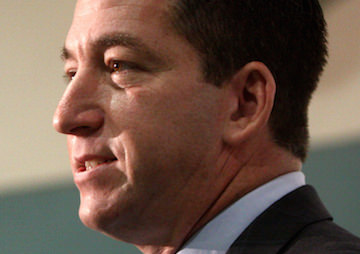 Glenn Greenwald. (Gage Skidmore / CC BY-SA 2.0)
Glenn Greenwald. (Gage Skidmore / CC BY-SA 2.0)
Friday’s Supreme Court decision recognizing the legal right of same-sex couples to marry “demonstrates that real political change typically comes from citizens, not leaders,” writes Glenn Greenwald at The Intercept.
“And it exposes the myth of defeatism,” Greenwald continues, “that people are incapable of undermining and subverting entrenched institutional injustices.
All the legal debates over the ruling are predictable and banal. Most people proclaim — in the words of Justice Scalia’s bizarre and somewhat deranged dissent — that it is a “threat to democracy” and a “judicial putsch” whenever laws they like are judicially invalidated, but a profound vindication for freedom when laws they dislike are nullified. That’s how people like Scalia can, on one day, demand that campaign finance laws enacted by Congress and supported by large majorities of citizens be struck down (Citizens United), but the next day declare that judicial invalidation of a democratically enacted law “robs the People of the most important liberty they asserted in the Declaration of Independence and won in the Revolution of 1776: the freedom to govern themselves.”
Far more interesting than that sort of naked hypocrisy masquerading as lofty intellectual principles are the historical and cultural aspects of today’s decision. Although the result was expected on a rational level, today’s ruling is still viscerally shocking for any LGBT citizen who grew up in the U.S., or their family members and close friends. It’s almost hard to believe that same-sex marriage is now legal in all 50 states. Just consider how embedded, pervasive and recent anti-gay sentiment has been in the fabric of American life.
In the 1970s — just 40 years ago — the existence of gay people was all but unmentionable, particularly outside of small enclaves in New York, Los Angeles and San Francisco. If your first inkling of a gay identity took place in that decade, as mine did, you necessarily assumed that you were alone, that you were plagued with some sort of rare, aberrational disease, since there was no way even to know gayness existed except from the most malicious and casual mockery of it. It simply wasn’t meaningfully discussed: anywhere. It was so unmentionable that Liberace, of all people, long insisted to his fans that he was a “bachelor” due to his inability to recover from his tragic break-up with his fianceé, the Norwegian figure skater Sonja Henie. With exceedingly few exceptions, openly gay figures in politics, sports, or entertainment were nonexistent (that is one reason why one of my childhood heroes was Martina Navratilova, who in the early 1980s came out as a lesbian despite being a young female immigrant from the Soviet bloc to the U.S., faced with the certainty of losing enormous amounts by being one of the few public figures to do so: she even had a trans woman as her coach).
“Up until three years ago,” Greenwald states later in the essay, “even as numerous other countries on multiple continents around the world enacted it — almost every national American political figure opposed same-sex marriage.”
Continue reading here.
— Posted by Alexander Reed Kelly.
Your support matters…Independent journalism is under threat and overshadowed by heavily funded mainstream media.
You can help level the playing field. Become a member.
Your tax-deductible contribution keeps us digging beneath the headlines to give you thought-provoking, investigative reporting and analysis that unearths what's really happening- without compromise.
Give today to support our courageous, independent journalists.

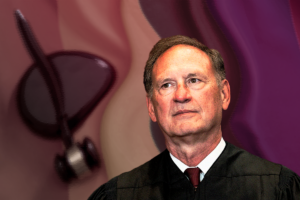
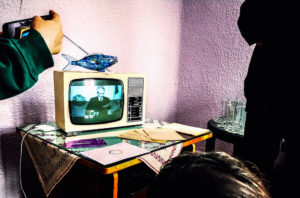
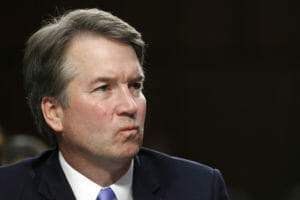
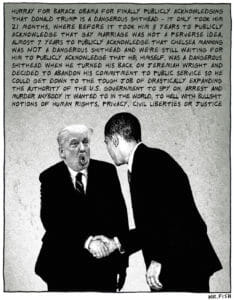
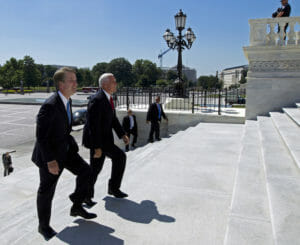


You need to be a supporter to comment.
There are currently no responses to this article.
Be the first to respond.